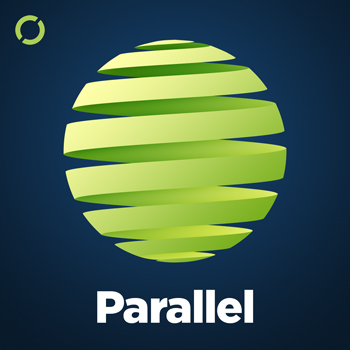Latest Episodes
#23: Not Forsaken
August 14th, 2019 · 54 minutes
In the final episode featuring bonus content from "36 Seconds that Changed Everything: How the iPhone Learned to Talk" I chat with someone who had very good reasons for being skeptical of Apple, but who eventually embraced iOS, once it proved itself.
#22: Aren't You Blind People Marvelous?
July 24th, 2019 · 40 minutes
Jonathan Mosen has many fans, and he's a lightning rod for others in the blind community. When I interviewed him for "36 Seconds that Changed Everything: How the iPhone Learned to Talk," I didn't expect his journey to form such a neat arc in the story.
#21: Deep Dev Dive
July 9th, 2019 · 59 minutes
Research for my documentary, "36 Seconds that Changed Everything: How the iPhone Learned to Talk" included interviews with two longtime iOS developers, each of whom took an early interest in accessibility.
#20: "36 Seconds That Changed Everything: How The iPhone Learned To Talk"
June 21st, 2019 · 38 minutes
From the moment it was announced in 2007, anticipation for the first iPhone was off the charts. But if you had a disability, the phone was just a cold, unresponsive rectangle of plastic and glass. This is the story of how that changed in June of 2009.
#19: Apple's Full Accessibility Plate
June 10th, 2019 · 40 minutes
Apple's Director of Global Accessibility Policy and Initiatives, Sarah Herrlinger talks about new and updated accessibility features on the company's platforms, as well as a bit of iOS access history.
#18: Low Orbit Halos
May 29th, 2019 · 42 minutes
Google I/O and Microsoft Build are done, but what did each have to say about accessibility? And which of their sponsors' tent pole technologies are being used to power the next generation of fancy tach for people with a variety of disabilities?
#17: Contrast is Good for Everybody
May 14th, 2019 · 42 minutes
I talked with two iOS developers who have a lot in common. They're independents who produce series of popular apps. And without really meaning to, they have each earned a reputation for thoughtful accessibility.
#16: We're Having a BBQ
April 16th, 2019 · 73 minutes
Each spring, all the accessibility tech nerds go to the CSUN Assistive Technology Conference in Southern California. At the end, a bunch of us do a wrap-up podcast for Blind Bargains, which covers the show from soup to nuts, Braille to navigation.
#15: The News About News +
April 2nd, 2019 · 31 minutes
Last Monday, Apple announced Apple News +. And I'm breaking usual format to give you a first look and demo, complete with extra accessibility sprinkles.
#14: Into the Weeds
March 7th, 2019 · 51 minutes
Darcy Burnard, a friend and longtime podcast collaborator, talks with me about making podcasts accessibly. Which tools work, which ones don't, and which can be made to do our bidding?

